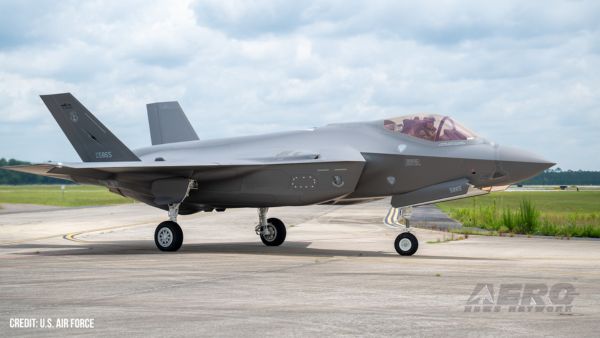Thu, Dec 29, 2011
PRBA Assails 'Fundamental Flaws' In FAA Study of Lithium
Battery Shipments
The Rechargeable Battery Association (PRBA) is claiming that a
recent FAA study on the potential risks posed by the air transport
of lithium batteries was based on flawed assumptions, unsound
methodology and faulty data.

"Unfortunately, the FAA study has provoked unwarranted
scare-mongering in the news media and distracted attention from
important safety issues. Everyone agrees improperly packaged
lithium batteries should not be shipped as cargo. This safety goal
can best be achieved by rigorous enforcement that will ensure
compliance with existing international battery transportation
regulations," PRBA Executive Director George A. Kerchner
said.
In a letter to the Secretary of the International Civil Aviation
Organization's Dangerous Goods Panel, PRBA detailed its concerns
about the methodological mistakes in the FAA study.
- The FAA based its study on five aircraft incidents. In two of
the five incidents, batteries were onboard the aircraft. The FAA
study assumed these batteries contributed to the two incidents,
then developed its risk model from this assumption. "But no facts
are presented that indicate any involvement of batteries in the
incidents," PRBA's letter noted. "The presence of batteries onboard
certainly is not enough to justify this assumption and should not
be the basis for FAA's next study on the cost benefit ratios for
various mitigation strategies."
- The FAA assumed bulk shipments of lithium batteries likely
contributed to two incidents involving air cargo planes. "This
assumption is unfounded," PRBA's letter said. In one incident, the
National Transportation Safety Board did not identify bulk
shipments of lithium ion or lithium metal batteries onboard the
aircraft. An investigation into the recent incident in Dubai never
said bulk shipments were "likely contributors" to the
accident.
- The FAA claimed air shipments containing batteries pose a more
significant risk than those without batteries. "However, in fact,
there is no statistically significant difference between the
'battery-related' and 'non-battery-related' incident rates," PRBA's
letter said, and explained why. In fact, the risks of an incident
may be higher for air cargo shipments that do not include
batteries, the letter noted.
- The FAA failed to distinguish between the very different
shipping practices for lithium ion and lithium metal batteries, and
then incorrectly stated that 50 percent of both are shipped on U.S.
all-cargo airlines for an average of 2,116 miles. "This is not
true," the letter said, because the bulk of lithium metal batteries
are transported by ships and trucks. Most lithium ion batteries are
in consumer electronic products or shipped with laptops, mobile
phones and other electronic goods. As a result, the FAA is "greatly
overstating the risk," the letter
said.
"PRBA has expressed serious doubts about efficacy of the FAA
study because it seems to have either misunderstood or misused data
on the basis of faulty premises. It is not a study on which any
policy changes could reasonably be based," Kerchner said.
More News
Aero Linx: The American Society of Aerospace Medicine Specialists (ASAMS) The Society is a non-profit organization created to serve as a voice for and represent the professional ne>[...]
Class C Service This service provides, in addition to basic radar service, approved separation between IFR and VFR aircraft, and sequencing of VFR aircraft, and sequencing of VFR a>[...]
Have A Story That NEEDS To Be Featured On Aero-News? Here’s How To Submit A Story To Our Team Some of the greatest new stories ANN has ever covered have been submitted by our>[...]
Also: ERAU Uses UAVs, P550 Group 2 UAS, Starship’s Florida Launches, NASA Missions Chopped The Air Force has put out a call to commission a one-to-one copy of the Iranian-des>[...]
Classic Klyde Morris From 11.07.16 (and Remembering Bob...) FMI: www.klydemorris.com>[...]
 ANN's Daily Aero-Linx (08.27.25)
ANN's Daily Aero-Linx (08.27.25) ANN's Daily Aero-Term (08.27.25): Class C Service
ANN's Daily Aero-Term (08.27.25): Class C Service ANN FAQ: Submit a News Story!
ANN FAQ: Submit a News Story! Airborne-NextGen 08.26.25: Iran UAV Knockoffs, X-37B Spaceplane, Army Training
Airborne-NextGen 08.26.25: Iran UAV Knockoffs, X-37B Spaceplane, Army Training Classic Klyde Morris (08.25.25)
Classic Klyde Morris (08.25.25)



